|
Fellows Class of 2019
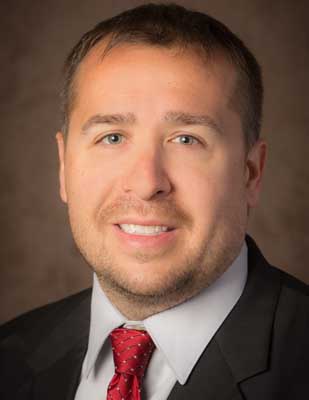 Paul Branscum, PhD, FAAHB
Paul Branscum, PhD, FAAHB
Miami University
Dr. Paul Branscum is an Associate Professor of Public Health in the Department of Kinesiology & Health at Miami University, in Oxford, OH. Dr. Branscum is a registered dietitian by initial training, earning his B.S. in Human Nutrition (2005) and M.S. in Nutrition (2008) at The Ohio State University. He then earned his Ph.D. in Health Promotion & Education from the University of Cincinnati in 2011. Dr. Branscum has published over 80 peer-reviewed journal articles, and his main research focus has been in the area of nutrition and childhood obesity prevention; specifically, predicting and changing obesogenic health behaviors among children, parents and young adults. Health behaviors he has studied includes: snacking behaviors, physical activity, sedentary behaviors, sleep, and parental monitoring behaviors centered around sugar sweetened beverage consumption and fruit and vegetable intake. Additionally, his research focuses on planning, implementing and evaluating innovative theory-based obesity prevention programs. He is also interested in the area of Health Literacy (specifically digital health literacy) and uses quantitative and qualitative methods to understand how individuals search for, and find, health related information on the Internet. Recently, his research has focused on methods to better operationalize psychosocial constructs used in theories of behavior change (i.e. perceived norms, and perceived behavioral control/self-efficacy), to be better able to evaluate them in research and in practice.
|
 Katie M. Heinrich, PhD, FAAHB
Katie M. Heinrich, PhD, FAAHB
Kansas State University
Dr. Katie M. Heinrich is an Associate Professor of Exercise Behavioral Science in the Department of Kinesiology at Kansas State University (KSU). She is the Director of the Functional Intensity Training Laboratory (http://bit.ly/fitlab), providing mentoring in applied exercise behavior and obesity research. The FIT Lab also promotes education and service by providing opportunities for students, faculty, staff, and community members to participate in exercise training through K-State CrossFit. Dr. Heinrich is recognized nationally and internationally for her research on high intensity functional training (HIFT), exercise and chronic disease, and the built environment. Her research aims are to study the effects of HIFT on fitness, health and psychosocial outcomes delivered in a group-based context. She focuses on populations across the lifespan including youth, active duty military (https://www.hhs.k-state.edu/kines/about/people/heinrich.html), healthy adults, overweight/obese adults, and cancer survivors. Dr. Heinrich’s work has been funded by the National Institutes of Health (NIH), Robert Wood Johnson Foundation/Active Living Research (ALR), the Sunflower Foundation, and the State of Hawai’i Department of Health, for over $3.4 million and she has co-authored over 60 peer-reviewed publications. Dr. Heinrich has served numerous times as a grant reviewer for the NIH, FEMA, CDC, and ALR and is an Editorial Board Member of Frontiers in Public Health Education and Promotion and Crossing Borders. Dr. Heinrich has been a full member of the Academy since 2009. After attending her first annual meeting in 2011 and serving as a poster judge, Dr. Heinrich has not looked back. She feels that the key aspects that set apart the Academy from other professional organizations include the breadth of the science, the focus on health behavior theory to improve public health, and the collegial members. Although AAHB is a small organization, members include icons, leaders, and rising stars who have and will continue to shape the field of health behavior.
 Daphne C. Hernandez, PhD, MSEd, FAAHB
Daphne C. Hernandez, PhD, MSEd, FAAHB
Department of Research, Cizik School of Nursing
University of Texas Health Science Center – Houston
Dr. Daphne Hernandez is the Lee and Joe Jamail Distinguished Professor and Associate Professor at the University of Texas Health Science Center – Houston, Cizik School of Nursing. She is also a Research Associate Professor in the Department of Health and Human Performance at the University of Houston.
Dr. Hernandez is a developmental psychologist who received interdisciplinary training throughout her graduate studies and postdoctoral fellowship. She has extensive experience studying gender and race/ethnic health disparities resulting from poverty-related issues, including food insecurity and obesity across the life span. Her areas of expertise also include investigating the health of low-income Latino immigrants, housing insecurity and homelessness, and adaptive athletes. Her research efforts have been funded by organizations including the National Cancer Institute, the National Institute of Child Health and Human Development, William T. Grant Foundation, Robert Wood Johnson Foundation, and USDA.
Dr. Hernandez has been a full member of the Academy since 2014. She was a member of AAHB’s Research Scholars Mentoring Program Class of 2015. She served as the 2019 Research Review Chair and currently serves on the board as a delegate. She also holds leadership roles within the professional organization, National Council on Family Relations (NCFR). She is the recipient of two paper awards from NCFR and peer mentoring award from the Robert Wood Johnson Foundation.
 Scott Leatherdale, PhD, FAAHB
Scott Leatherdale, PhD, FAAHB
University of Waterloo - School of Public Health and Health Systems
Dr. Scott Leatherdale is a Professor, a CIHR-PHAC Chair in Applied Public Health Research in the School of Public Health and Health Systems, and a University Research Chair at the University of Waterloo. His work focuses on advancing a systems science approach to primary prevention activities, developing and evaluating population-level health interventions across multiple risk factor domains, and creating research infrastructure to facilitate large population studies in chronic disease prevention. His work is designed to engage numerous stakeholders at multiple-levels (regional, provincial, national) to impact the Canadian population. The core foundation for his current program of research is the COMPASS System; a prospective cohort study following 75,000+ Canadian youth to evaluate how ongoing and real-world changes to programs, policies, or built environment resources surrounding youth impact multiple health behaviours and outcomes over time. Dr. Leatherdale was the inaugural winner of the Canadian CIHR-IPPH Trailblazer Award in Population Health Solutions. To date, he has been a Principal Investigator (PI) on 38 research grants totalling more than $8.7 million ($4.3 million in current funding), has received salary awards totalling more than $1.5 million, and has published 220+ peer-reviewed journal articles (150+ first author or senior author papers), with more than 200 different co-authors. Given the value he places on supporting trainees, these manuscripts include 150+ instances where one or more trainees is an author, and 100+ manuscripts with a trainee as the first author.
 Hsien-Chang Lin, PhD, FAAHB
Hsien-Chang Lin, PhD, FAAHB
Indiana University
Dr. Hsien-Chang Lin is a Professor of Health Policy at Indiana University School of Public Health at Bloomington. Before joining Indiana University, he was trained in Economics (BA and MAs), Sociology (BA), Health Policy and Pharmaceutical Health Services Research (dual PhD), and Pharmacoepidemiology and Comparative Effectiveness Research (Postdoc). His research program encompasses health services, health policy, pharmaceutical health outcomes, and health behavior research.
Guided by the socioecological model of health, Dr. Lin applies multidisciplinary perspectives and methods to bridge macro-level health policy analysis to micro-level health behavioral research. Recently, he is particularly interested in how policies may influence substance use/misuse behaviors, including e-cigarette vaping behaviors as well as physicians’ prescribing and patients’ use/misuse of prescription opioids. His work also focuses on adopting innovative methods to address complex health issues, such as using big data methods to deal with high-dimensional quantitative data in policy and genetics to study their influences on substance use/misuse behaviors. His research is supported by federal and state agencies including the National Institute on Drug Abuse and Indiana State Department of Health.
Dr. Lin is a full member of AAHB since 2014 and has been active in his service to the Academy. He served as Chair of the Annual Conference Planning Committee (2018-2019), Chair of the Awards Council (2018-2021), Chair of the Research Review Committee (2015-2016), and serves on the AAHB Board of Directors (2018-2021). He enjoys being a devoted member of the Academy, his “academic home”. He continues to encourage students and colleagues to join this marvelous organization that has many phenomenal and passionate health behavior researchers.
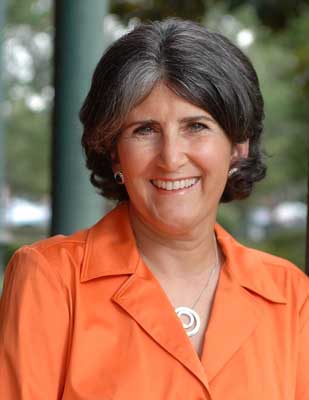 Mary A. Steinhardt, EdD, LPC, FAAHB
Mary A. Steinhardt, EdD, LPC, FAAHB
University of Texas at Austin
Dr. Mary Steinhardt is Professor of Health Behavior & Health Education in the College of Education at The University of Texas at Austin. Dr. Steinhardt also serves as the University Faculty Ombuds. She is the recipient of the first annual Dean’s Distinguished Teaching Award in the College of Education, the Texas Excellence Teaching Award presented by the Texas Exes, and the Regents Outstanding Teaching Award from the University of Texas System. She also serves as a Senior Provost Teaching Fellow and is a member of the Academy of Distinguished Teachers. Dr. Steinhardt has worked with such companies as 3M, Motorola, Dell, and Applied Materials, as well as the military at Brooke Army Medical Center and Fort Hood. In 2017, she received The Civitatis Award, the highest distinction made by the University of Texas in recognition of outstanding faculty citizenship.
Dr. Steinhardt’s research broadly examines determinants and methods for building resilience and strength when challenged with change and stressful situations. Current projects focus on biopsychosocial pathways to type 2 diabetes in racially/ethnically diverse populations and resilience-based multi-behavior interventions to reduce these disparities. For example, her grant from the National Institutes of Health (NIDDK, R01) examines behavioral and biological pathways (HPA axis activity) by which resilience resources impact type 2 diabetes health outcomes among African Americans. Her research group also examines the role of campus integration as a moderating variable in the association between resilience and mental health outcomes among underrepresented minority college students, finding that greater resilience is associated with lower anxiety for students with higher versus lower campus integration.
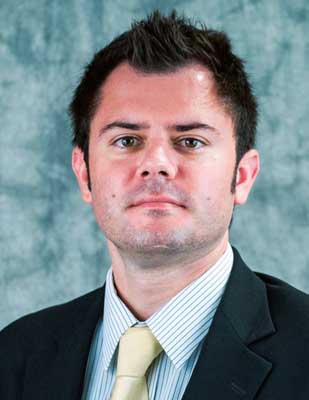 Samuel Dominic Castiglione Towne Jr., PhD, MPH, CPH, FAAHB
Samuel Dominic Castiglione Towne Jr., PhD, MPH, CPH, FAAHB
University of Central Florida
Dr. Towne’s major research focus includes aging, global health, and social and structural determinants of health emphasizing vulnerable populations. His published work includes studies focused on the United States, China, and elsewhere.
His contribution to interdisciplinary and transdisciplinary work on issues facing vulnerable populations is informed by his training in psychology (BS), health behavior (MPH), and health policy (PhD). He did his postdoctoral training in Aging and Minority Health Disparities at Texas A&M University after graduating with his PhD in Health Services, Policy, and Management from the University of South Carolina’s Arnold School of Public Health.
Dr. Towne is currently a tenure-track Assistant Professor in the Department of Health Management and Informatics with a joint appointment with the Disability, Aging, and Technology Faculty Cluster Initiative at the University of Central Florida. He is also a faculty associate with the Center for Population Health and Aging and the Southwest Rural Health Research Center both at Texas A&M University. He also holds an adjunct faculty position in the Department of Environmental and Occupational Health at Texas A&M University.
He has been a central member of several transdisciplinary teams involving urban planning, medicine, geography, and public health seeking to tackle problems from multiple social ecological levels. He is the recipient of numerous national awards including the Judy K. Black Early Career Research Award from the American Academy of Health Behavior (AAHB) and has led or co-authored more than 60 peer-reviewed scientific articles (n ≥ 20 as lead or sole author) published in national and international journals.
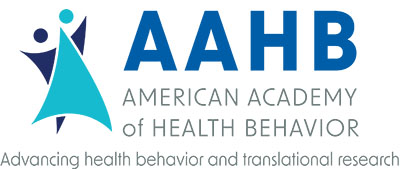

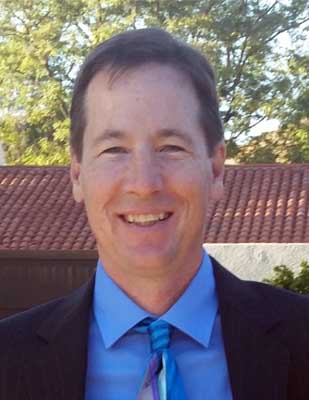 Scott C. Carvajal, Ph.D., MPH, FAAHB
Scott C. Carvajal, Ph.D., MPH, FAAHB